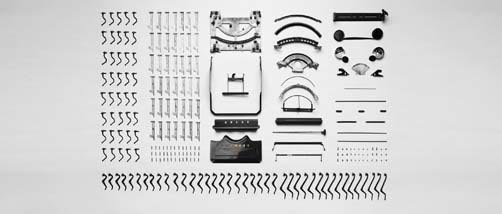Obsessive Compulsive Disorder (OCD).
The term Obsessive Compulsive Disorder (OCD) is one that many people often misunderstand. It’s used loosely today, and is often attributed as a casual term to cover all manner of associated issues. It is, though, typically associated with someone who finds it hard to control unwanted and disruptive thoughts, actions and urges. It causes a serious amount of anxiety in the sufferer, and often involves the formation of repetitive and forced compulsions.
This is performed in an almost ritualistic manner, used to help the individual cope with their own issues. For example, a common example would be an obsessive compulsion to turn the light on/off an exact number of times when leaving a room. The examples are many and diverse, and range from the mild to the extreme. The following, though, makes up a common range of potential compulsions found in sufferers of OCD:
- The need for almost exact isolation of where items sit in the most exact locations possible. If items are not in the needed formation, then it causes feelings of unsettlement and distress for the individual.
- Chasing perfection, always looking to make sure that everything is “just right” before moving forward. A rich desire for everything to be 100% correct, and a complete lack of tolerance for anything other than utter order and perfection as they see fit.
- Excessive and often repeated compulsions i.e. washing of hands, turning on/off of lights and rituals involving anything from the use of computer interfaces to hygiene rituals. These are often repeated to excess, and can sometimes lead to cleaning and washing to raw extremes.
- An acute fear of coming into contact with any form of dirt, substance or chemical in any shape or form. This may include fear of harming others through their own failings i.e. not cleaning enough and making someone else fall ill.
What are the symptoms of Obsessive Compulsive Disorder (OCD)?
Other than the above, it’s important that you know what general signs and images to look for when it comes to the compulsions that someone may face when it comes to their OCD. While by no means universal, the following traits are common within OCD sufferers:
- A constant sense of guilt and responsibility.
- Paranoia and fear over health, illness and conditioning of themselves and others.
- Fear of understanding biological reactions i.e. attraction
- Intolerance of knowledge and an inability to find out.
- Physical issues, including shortness of breath stomach aches and a racing heart.
- Constant anxiety and fear of the unknown (or the unlikely).
- Repetitive feelings of guilt and shame over actions from the past.
- Needless purchasing behaviour and stockpiling to needless excess.
- Repeating phrases either in multiples or in short bursts.
- An inability to believe that a task has been completed to full completion.
- Discomfort touching things that others already have.
While these signs are not always specifically for someone with OCD, a large grouping of related traits could point to an issue. As ever, you should look to investigate these concerns further with friends, family and professionals if you feel this is detrimental to your quality of life.
Copyright 2018 ACME Inc – Privacy Policy

Recent Comments